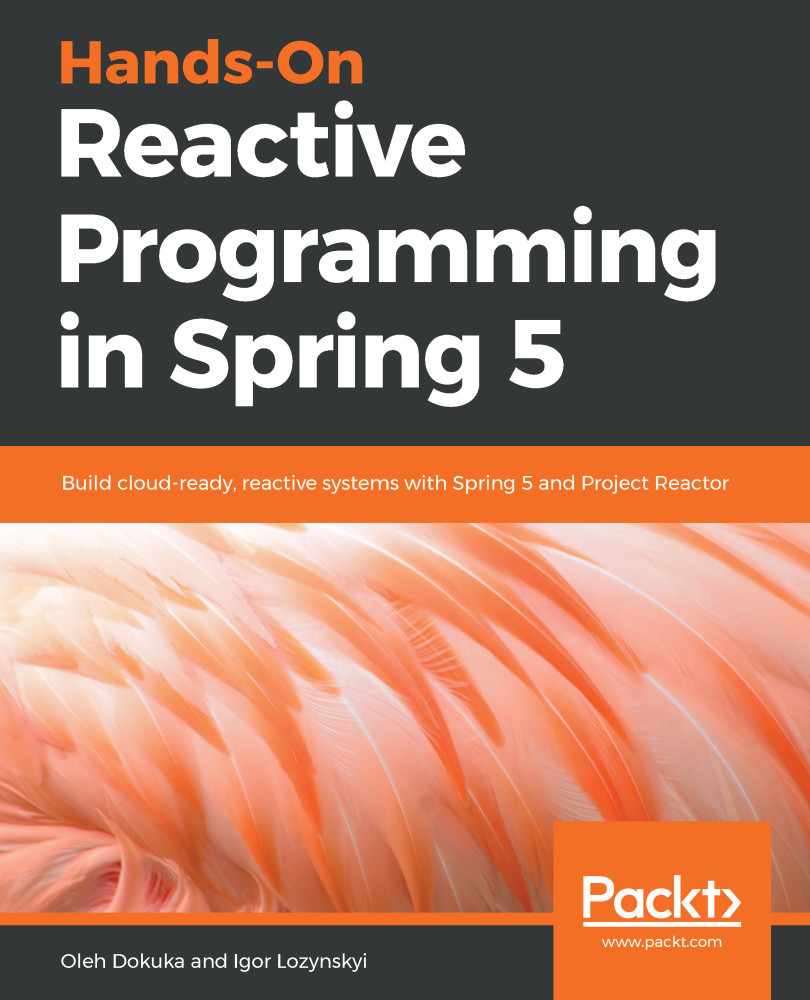In the previous chapter, we looked at an overview of the Reactive Streams specification and the way it augments reactive libraries by offering common interfaces and a new pull-push model for data exchange.
In this chapter, we are going to dive into Project Reactor, the most famous library in the reactive landscape, which has already become a vital part of the Spring Framework ecosystem. We will explore the most essential, frequently used Project Reactor APIs. The library is so versatile and feature-rich that it deserves a separate book of its own, it being impossible to cover its entire API in one chapter. We will look under the hood of the Reactor library and use its power to build a reactive application.
In this chapter, we are going to cover the following topics:
- The history and motivation behind Project Reactor...


